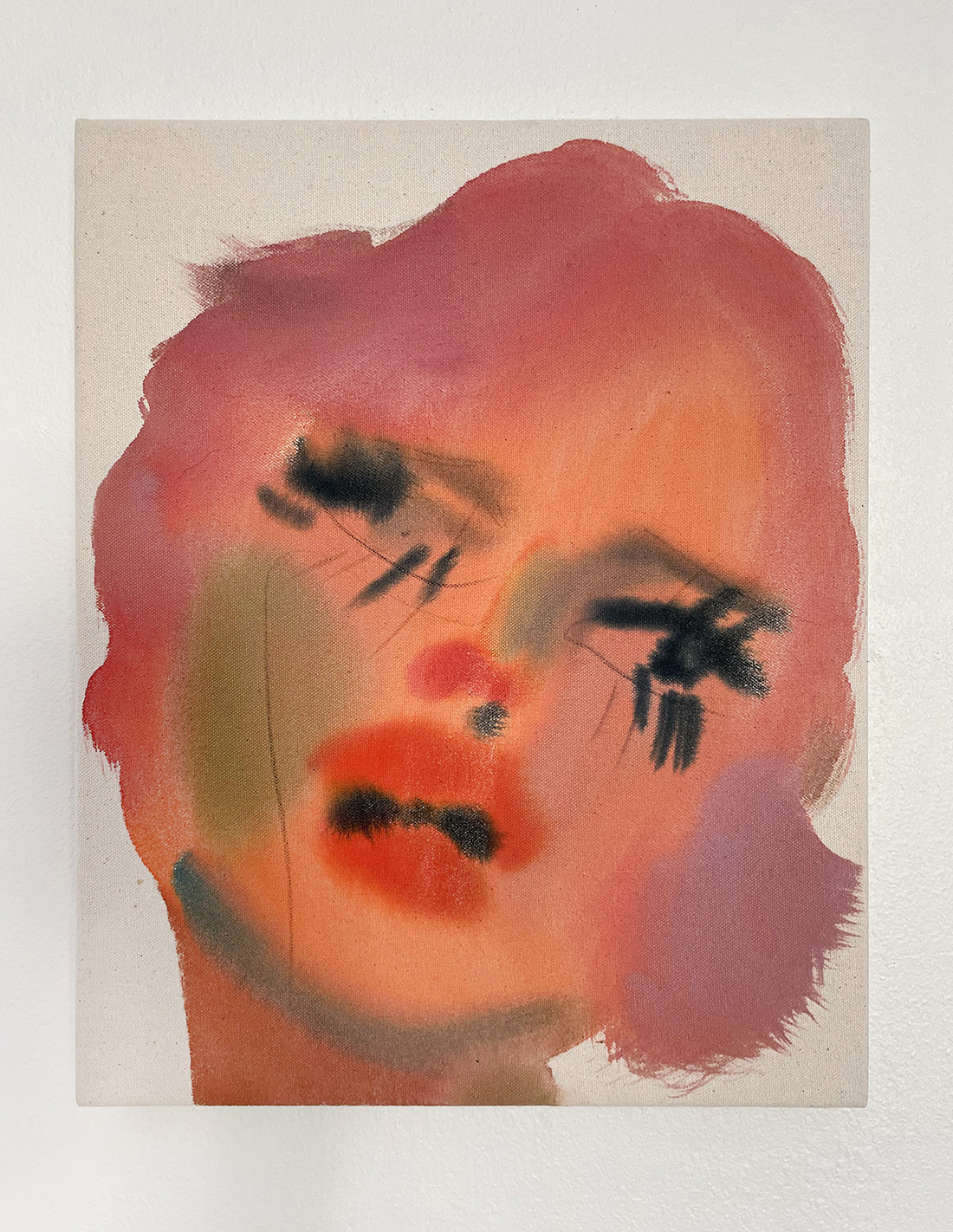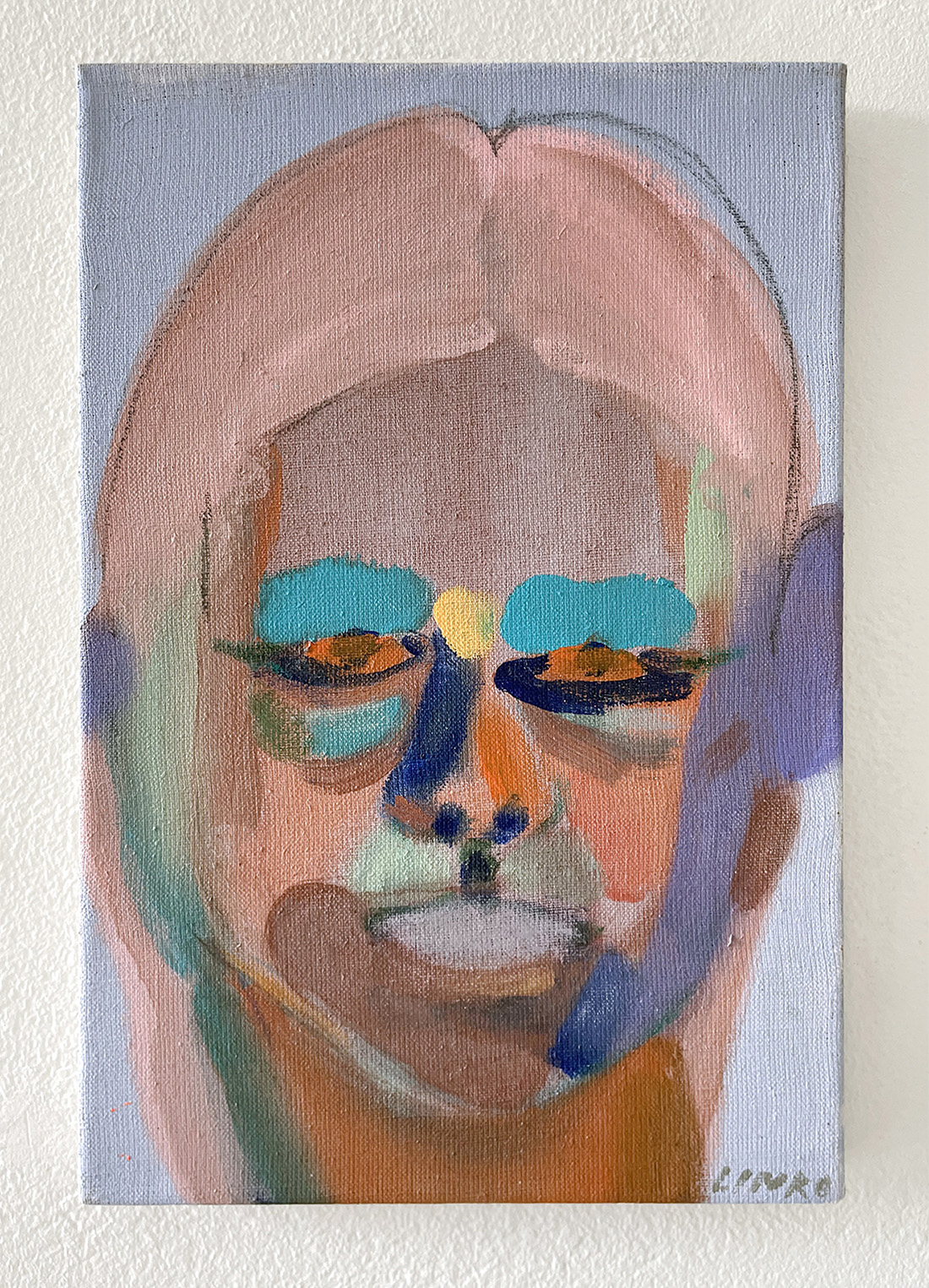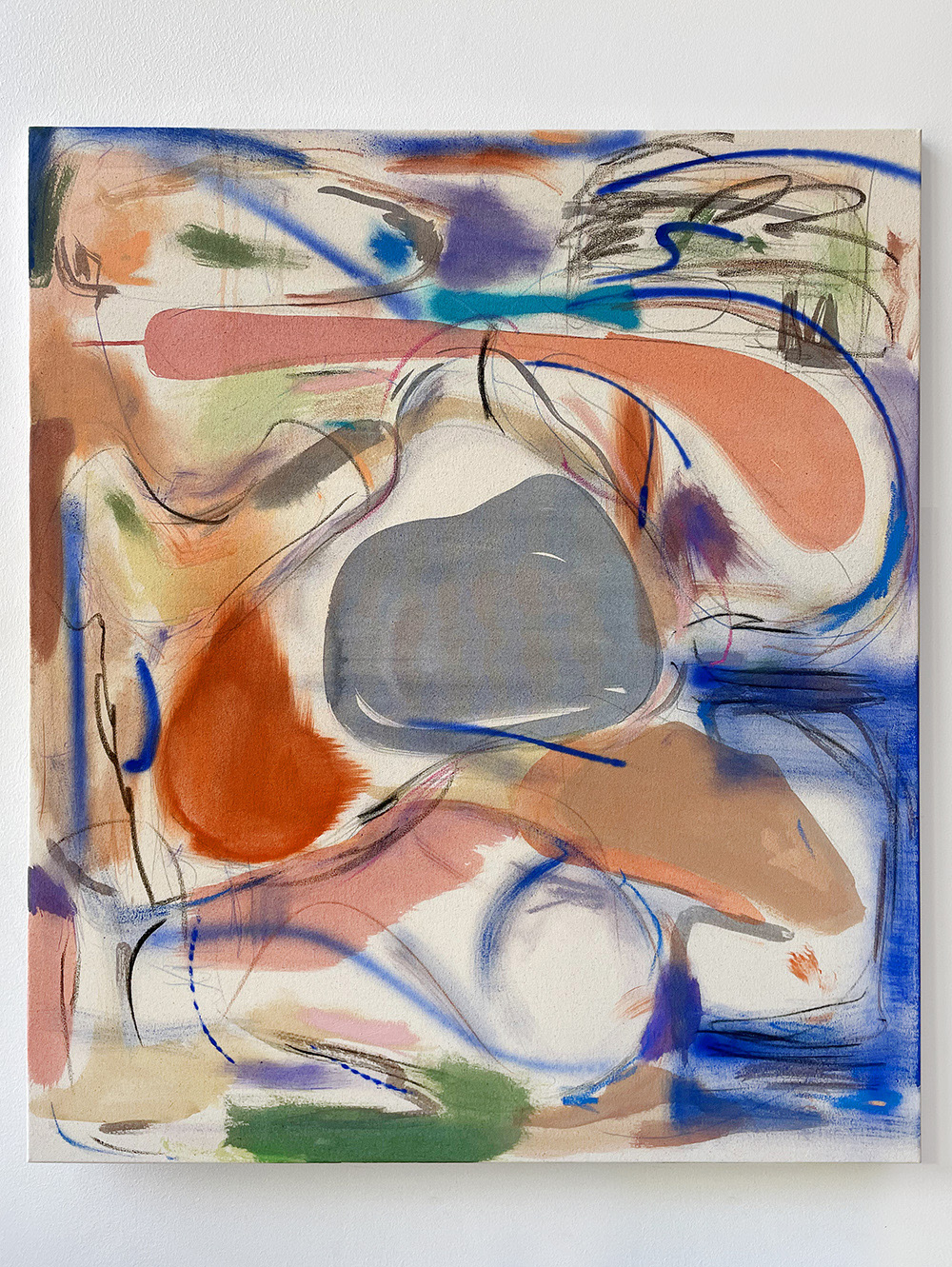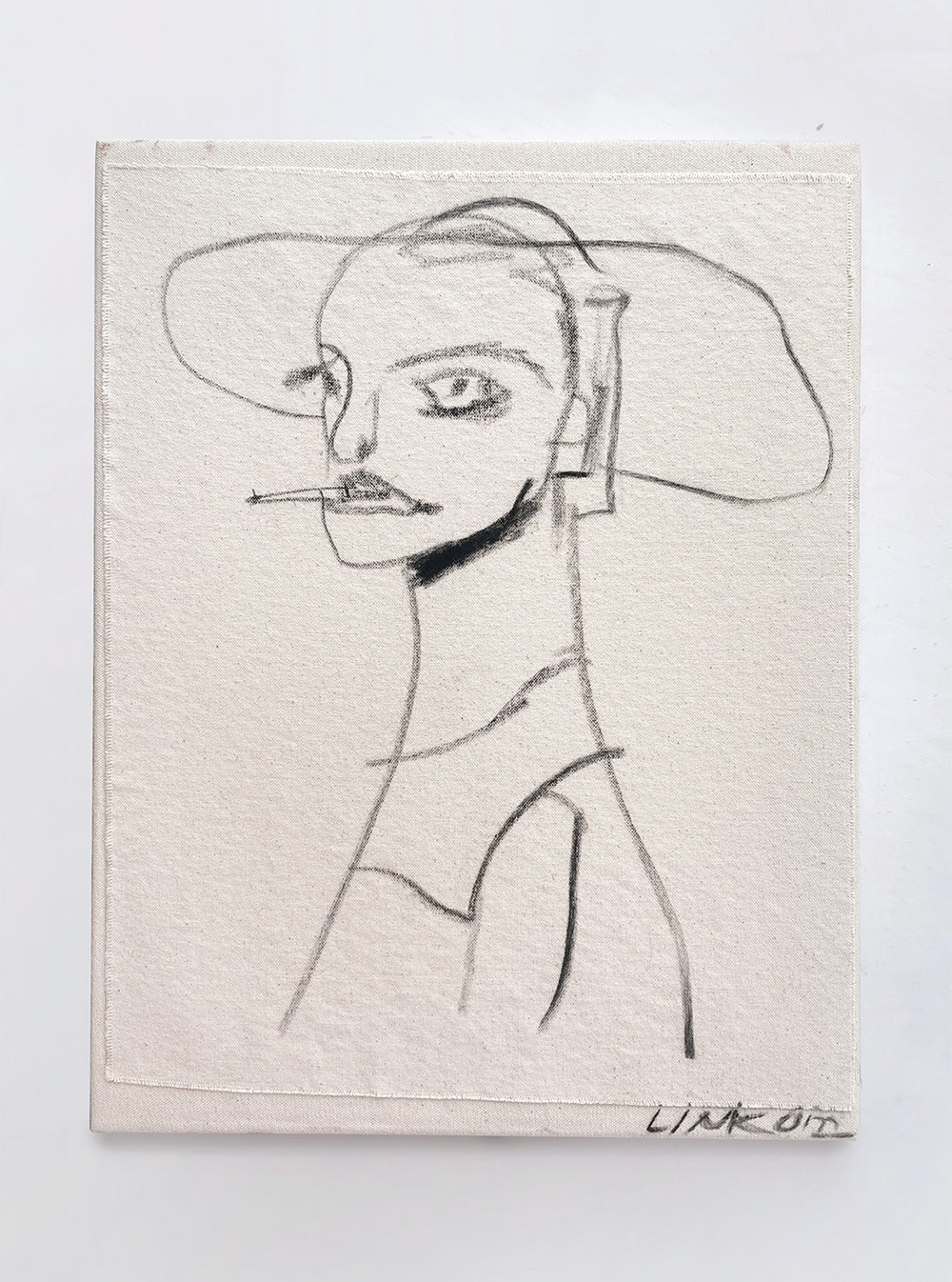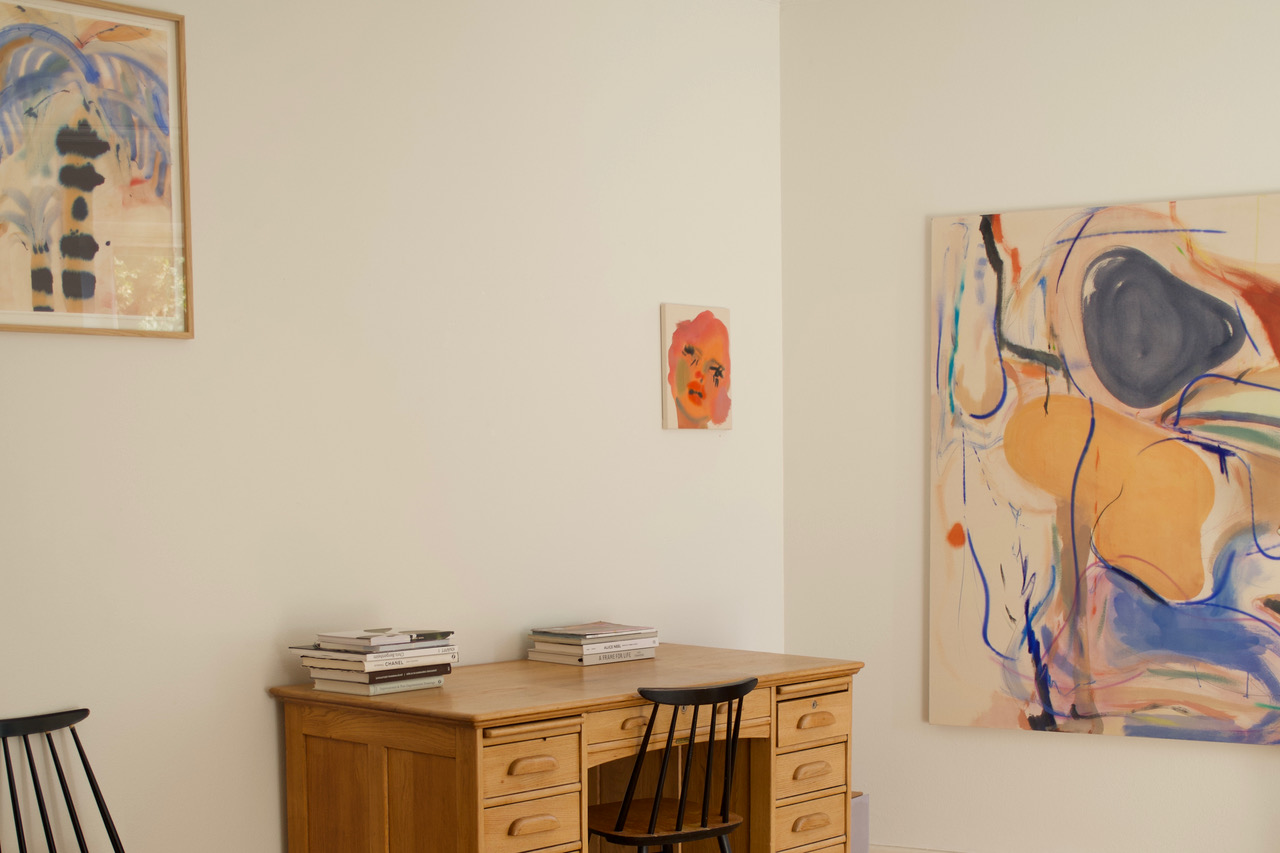Blush
01. Linda Linko’s series Blush ensemble of paintings and drawings has followed her for many years, waiting for the right moment to be presented. She wanted the series to be formed with a free rein, on its own terms. After the birth of her son, she started painting again; carefully, in small, with watercolours – and of him, of course. She describes that the faces soon turned into self-portraits, and thus, over time, into one or another. In looking for the size and technique, Linko did not want to become too fixated on one thing. To her, it is not who the piece portrays that is relevant, but rather, how it's portrayed – the level from which we look at each other.
“The characters in my works do not owe me anything. Showing empathy and sensitivity without stepping into a trap is difficult, and maybe that's why it's so interesting. Every piece has its own identity, and I am just a middleman; an interpreter, a giver of form. However, just as they owe me nothing, I also don’t own them. As a viewer you get to choose who the works represent: me, someone else, family, a stranger, lover, an idol perhaps. Lay your gaze on them and they’ll gaze back at you.”
“The characters in my works do not owe me anything. Showing empathy and sensitivity without stepping into a trap is difficult, and maybe that's why it's so interesting. Every piece has its own identity, and I am just a middleman; an interpreter, a giver of form. However, just as they owe me nothing, I also don’t own them. As a viewer you get to choose who the works represent: me, someone else, family, a stranger, lover, an idol perhaps. Lay your gaze on them and they’ll gaze back at you.”




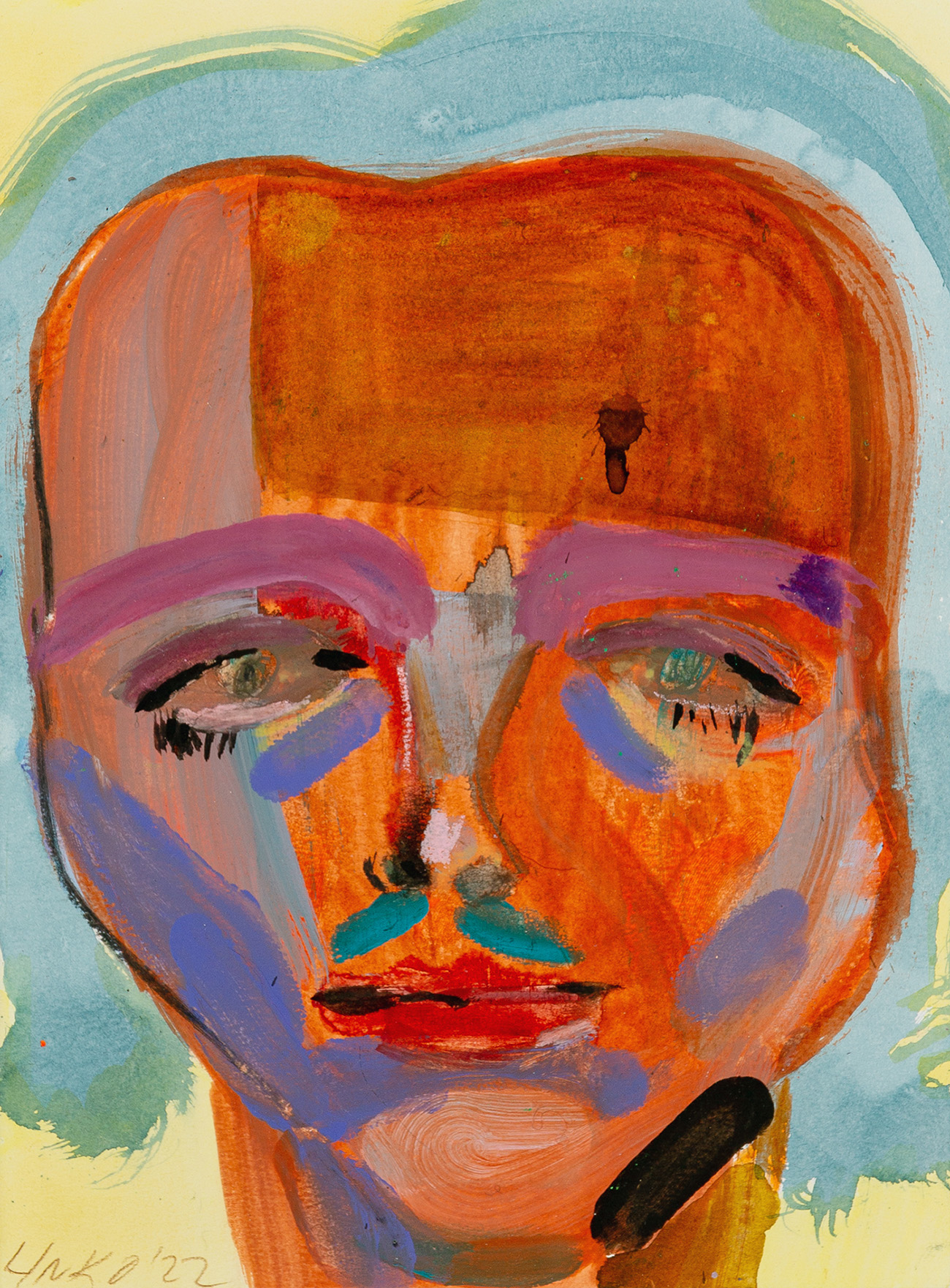
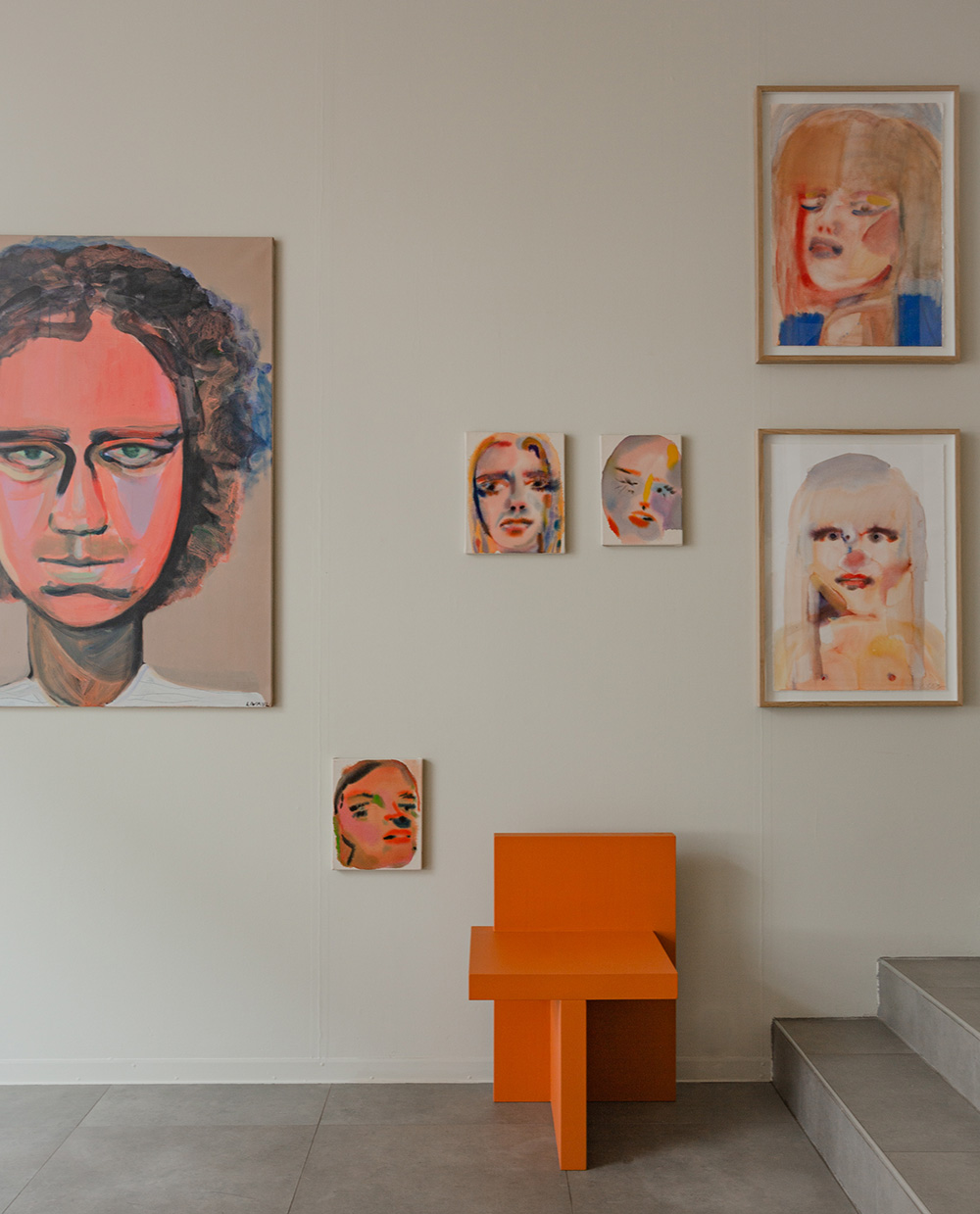 photography (c) katja Hagelstam, Lokal
photography (c) katja Hagelstam, LokalEchoes
01. “Girls and women, all dressed into their best dresses, work in a silk factory in the 40’s or 50’s. I am surprised. From photos the process looked still and stiff, but video footage reveals their movements were fast and lively. However, behind their focused faces I come to think how were the women really like: What kind of jokes they told, what made them smile, were the girls thinking about boys, what were their wisdom, sorrow? True colors in real life.
I would not call these artwork as portraits, rather echoes of people who might have worked here. “
I would not call these artwork as portraits, rather echoes of people who might have worked here. “
02. Artist residency, exhibition and Open Studio at Villa Filanda Antonini, Villorba, Treviso (IT) October 2023 – more info

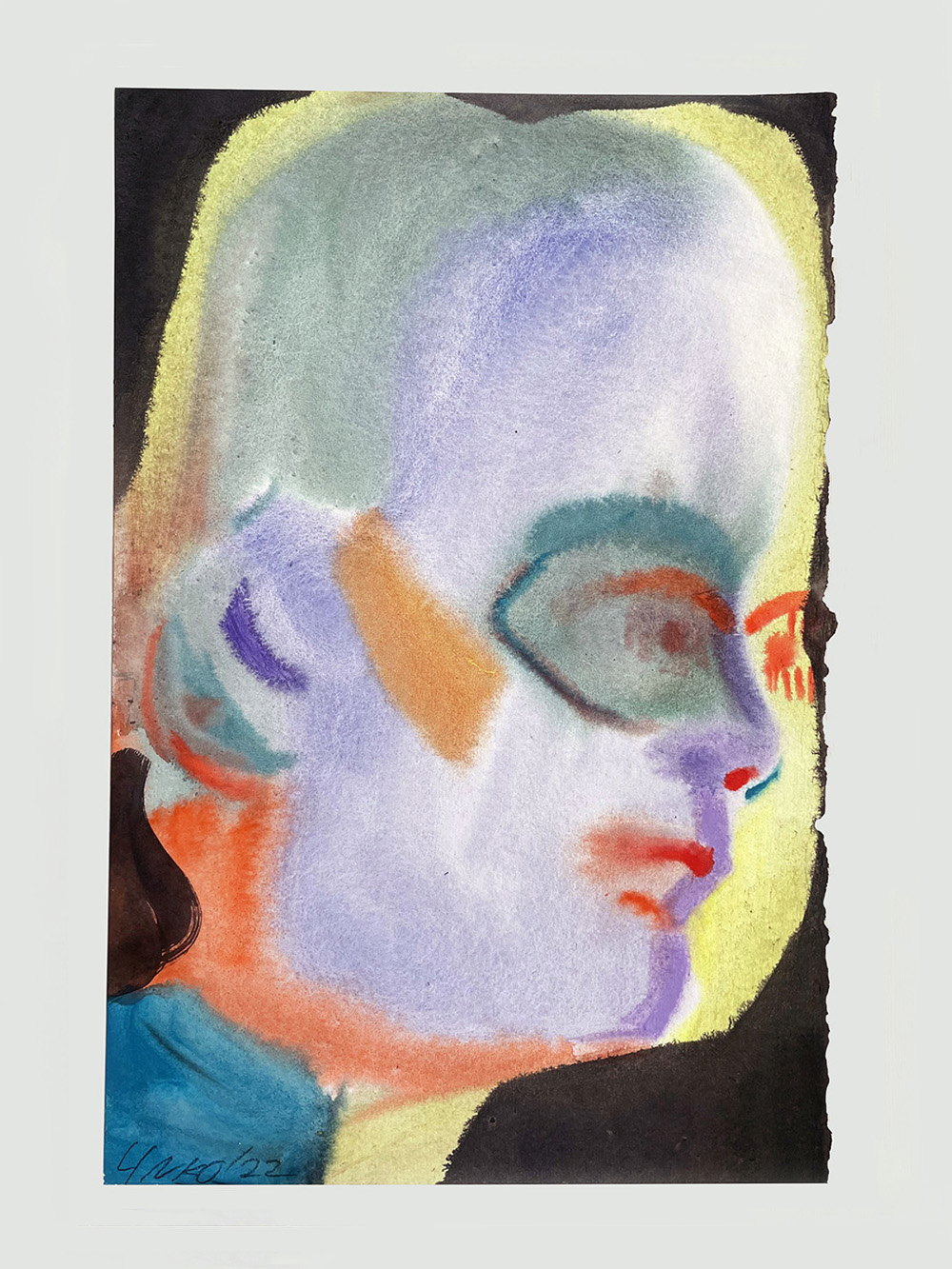
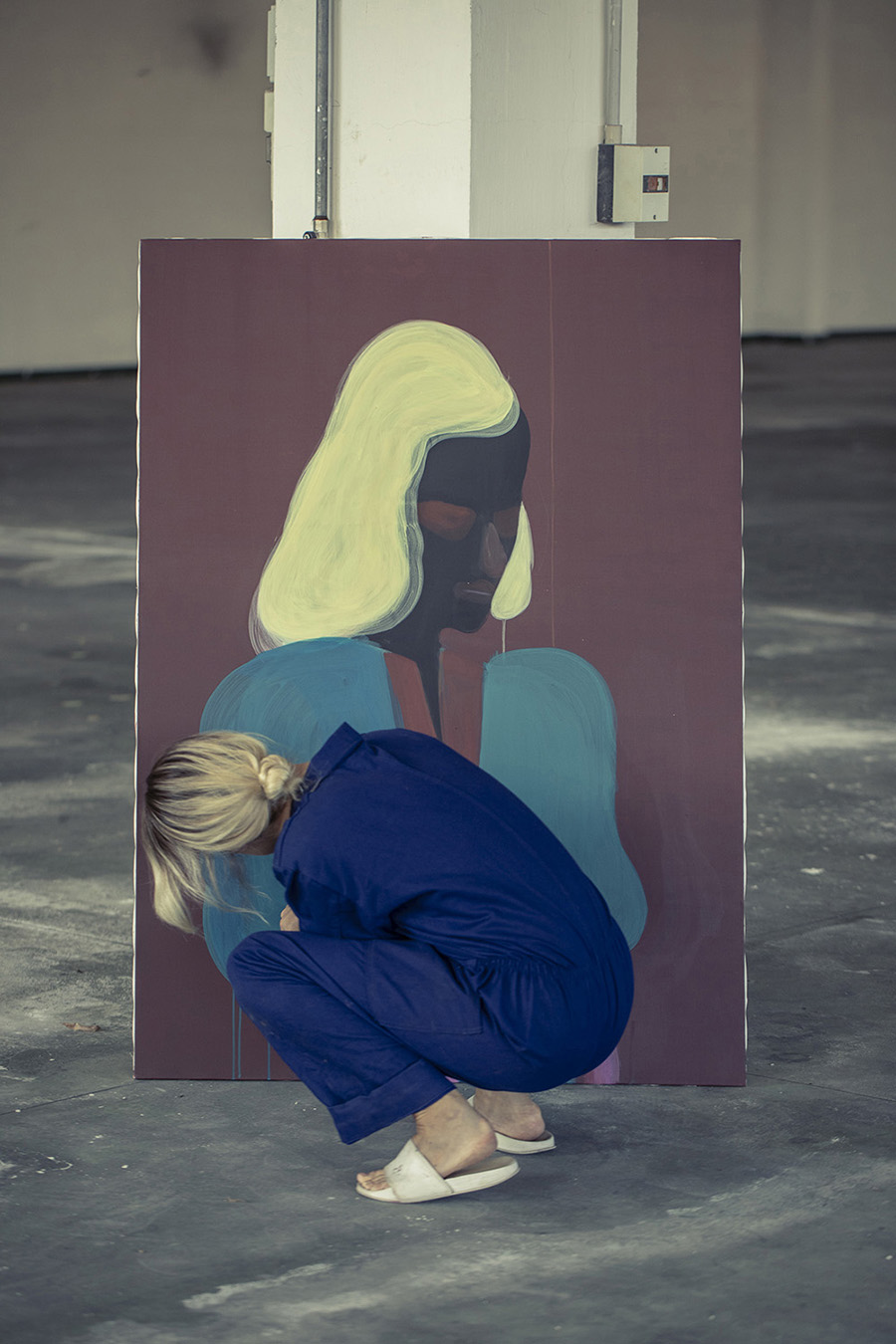
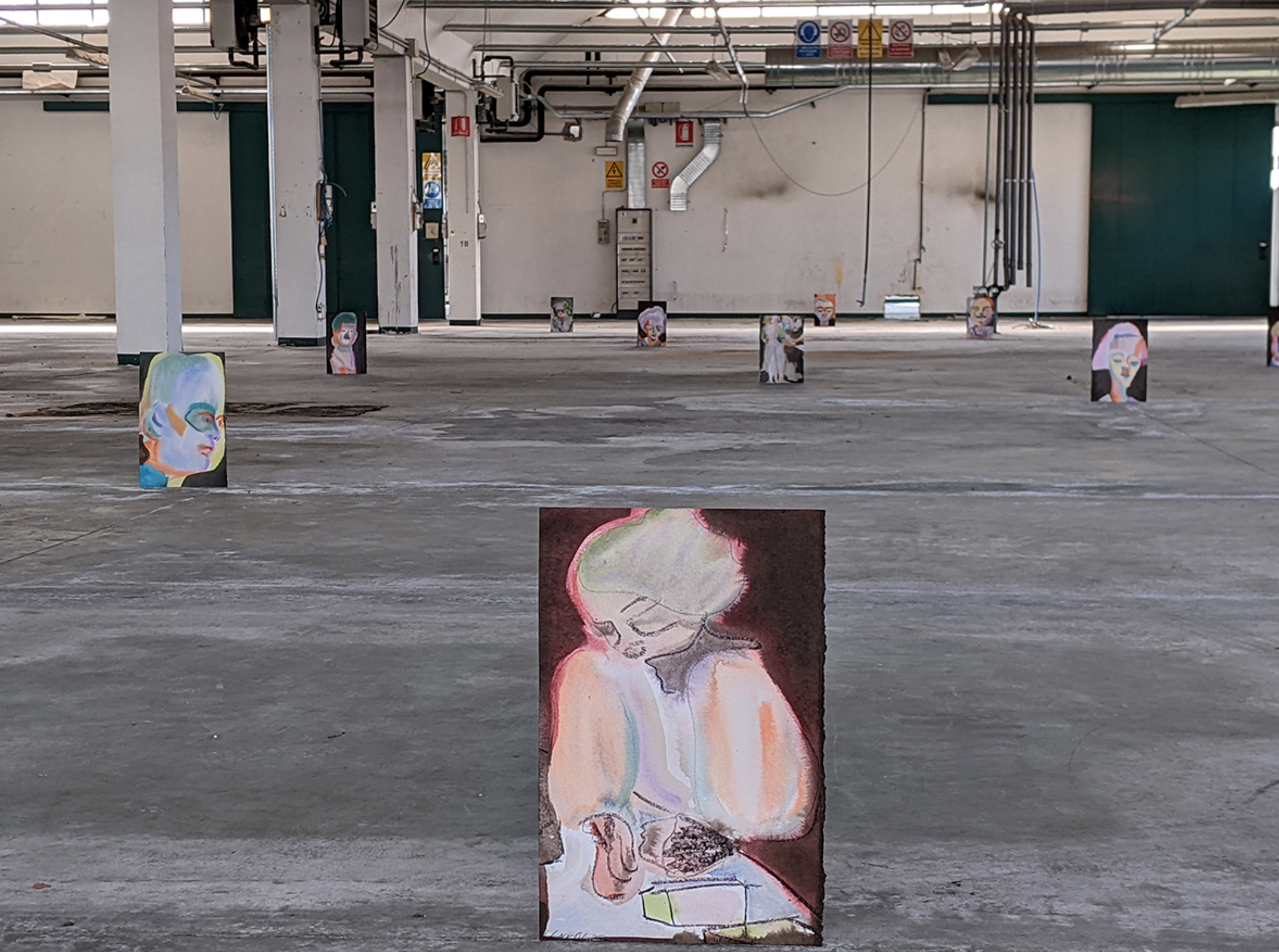
photography,installation view (C)Federico Marin / VFA
Saatchi X Delphian Gallery
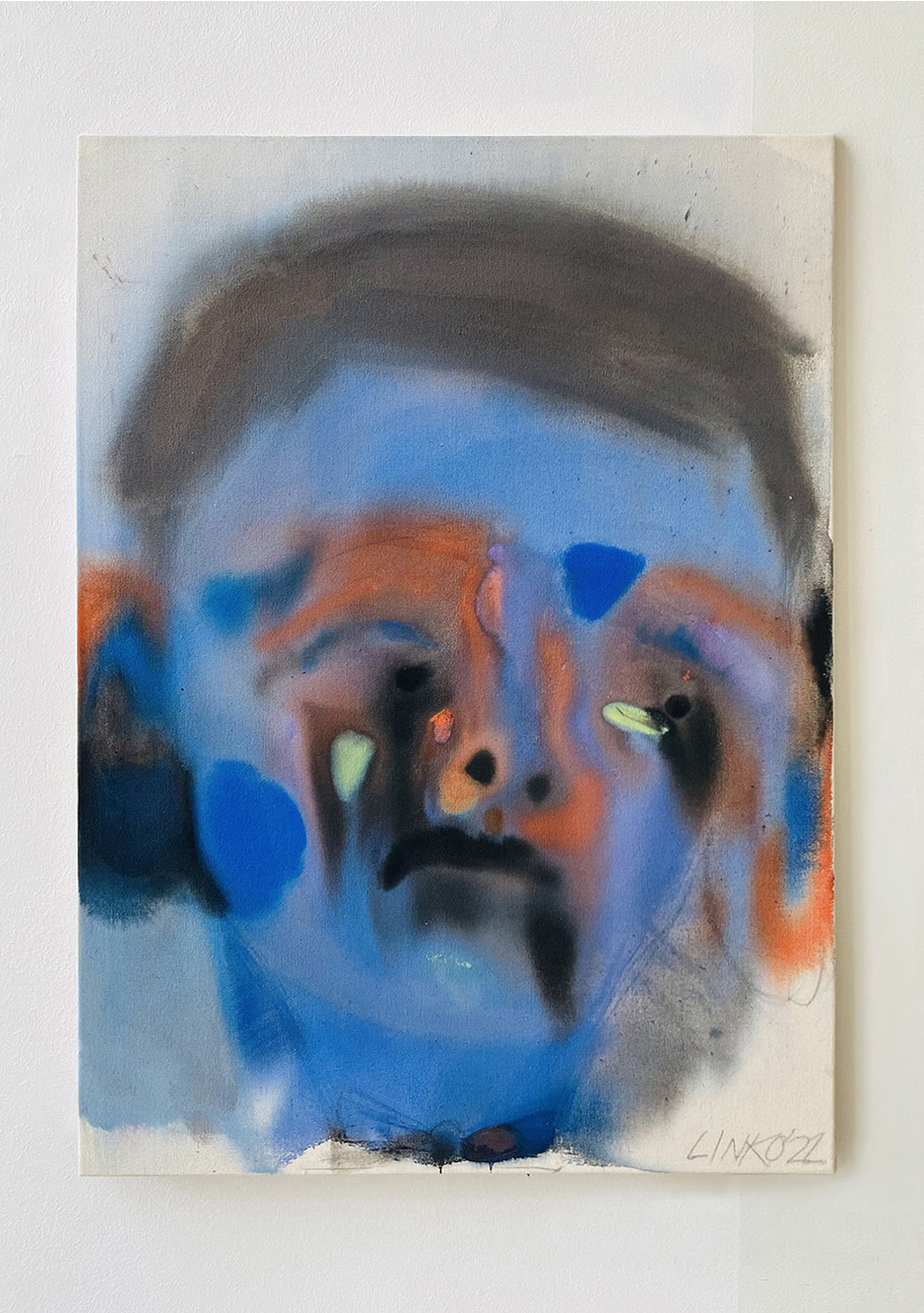
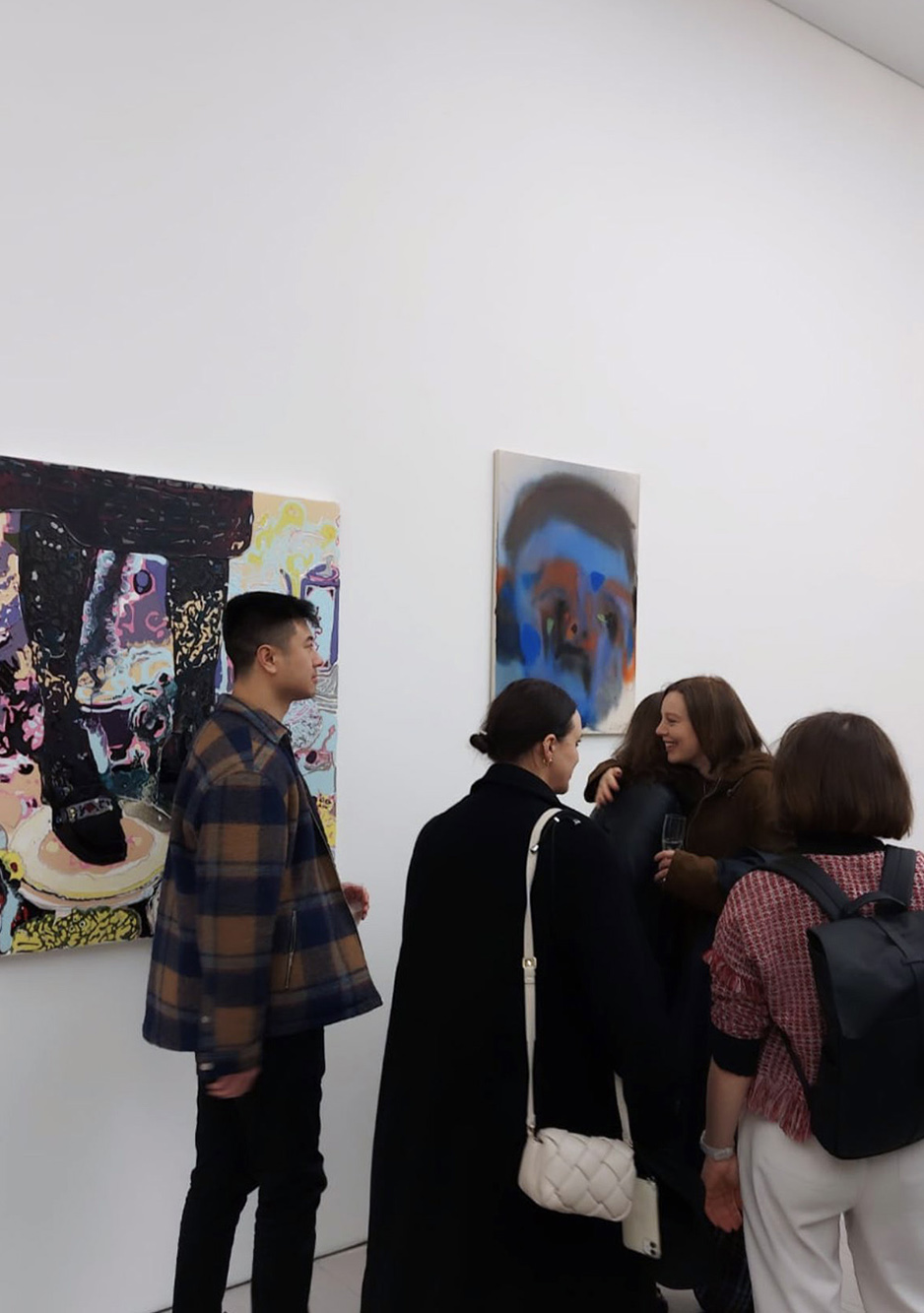
Saatchi Gallery, London (UK) 2022
Caldera
01. Paintings of Caldera vary from abstract to representational, yet both are united by a desire to capture something inherently human. Sensitivity. Beneath the vibrant and soft lines, there is a bittersweet feeling: the compulsion to move forward when one simply wants to be, to stay still even as an inner burning persists. Often, it is precisely these experiences that leave the most profound imprint. I believe in the power of subtle signals.
“ I often describe my process as a snowball or a wispy cloud where movement is scattered. I periodically return to the core, continuing old themes even after years, and the concept of the whole often remains open-ended. Few things in the world have clear outlines.”
When a volcano erupts, its center often fractures and collapses. This bowl-shaped depression is known as a caldera.
“ I often describe my process as a snowball or a wispy cloud where movement is scattered. I periodically return to the core, continuing old themes even after years, and the concept of the whole often remains open-ended. Few things in the world have clear outlines.”
When a volcano erupts, its center often fractures and collapses. This bowl-shaped depression is known as a caldera.
02. Exhibited at Marcy Home Gallery by Antonia Hamberg in 2022
